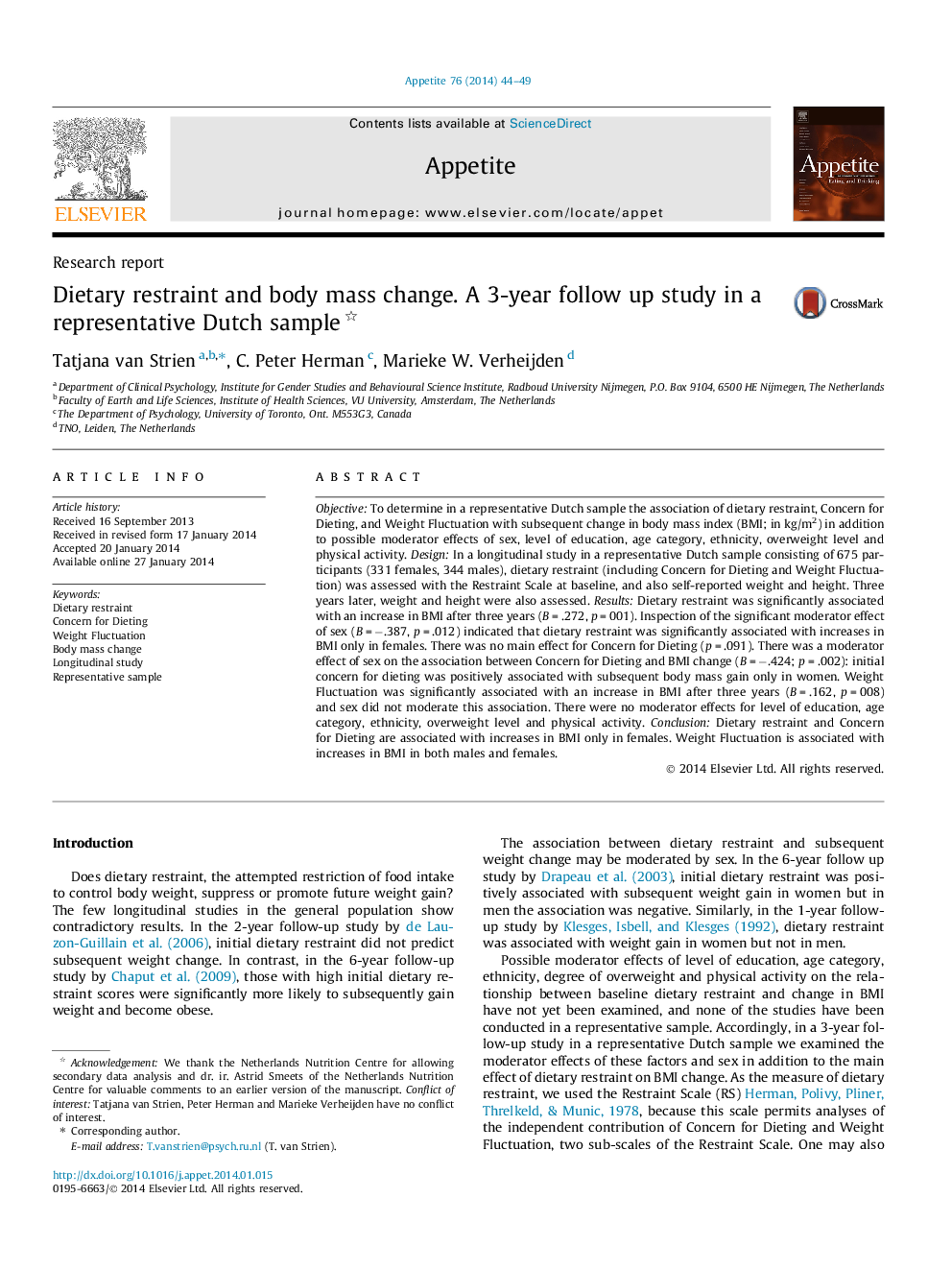| کد مقاله | کد نشریه | سال انتشار | مقاله انگلیسی | نسخه تمام متن |
|---|---|---|---|---|
| 939494 | 1475404 | 2014 | 6 صفحه PDF | دانلود رایگان |
• Does dietary restraint suppress or promote future weight gain?
• A prospective study (3-year follow-up) in a representative Dutch sample.
• Body mass change, Dietary restraint, Concern for Dieting and Weight Fluctuation.
• Higher dietary restraint longitudinally predicted increases in BMI in females.
Objective: To determine in a representative Dutch sample the association of dietary restraint, Concern for Dieting, and Weight Fluctuation with subsequent change in body mass index (BMI; in kg/m2) in addition to possible moderator effects of sex, level of education, age category, ethnicity, overweight level and physical activity. Design: In a longitudinal study in a representative Dutch sample consisting of 675 participants (331 females, 344 males), dietary restraint (including Concern for Dieting and Weight Fluctuation) was assessed with the Restraint Scale at baseline, and also self-reported weight and height. Three years later, weight and height were also assessed. Results: Dietary restraint was significantly associated with an increase in BMI after three years (B = .272, p = 001). Inspection of the significant moderator effect of sex (B = −.387, p = .012) indicated that dietary restraint was significantly associated with increases in BMI only in females. There was no main effect for Concern for Dieting (p = .091). There was a moderator effect of sex on the association between Concern for Dieting and BMI change (B = −.424; p = .002): initial concern for dieting was positively associated with subsequent body mass gain only in women. Weight Fluctuation was significantly associated with an increase in BMI after three years (B = .162, p = 008) and sex did not moderate this association. There were no moderator effects for level of education, age category, ethnicity, overweight level and physical activity. Conclusion: Dietary restraint and Concern for Dieting are associated with increases in BMI only in females. Weight Fluctuation is associated with increases in BMI in both males and females.
Journal: Appetite - Volume 76, 1 May 2014, Pages 44–49
